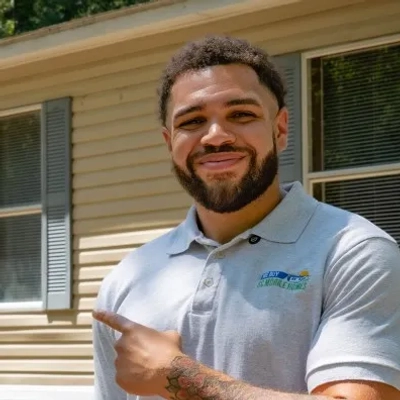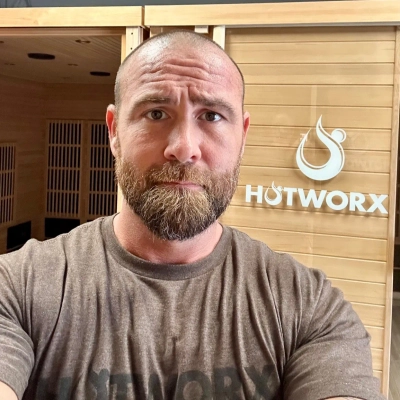20 Ways to Reframe Your Product's Value Proposition for Different Clients
Industry experts have shared valuable insights on adapting value propositions to meet diverse client needs. This practical guide reveals 20 strategic approaches to reframing product benefits, from seasonal staffing solutions to converting property liabilities into business capital. Each strategy demonstrates how subtle shifts in messaging can dramatically improve client engagement and conversion rates.
Pay Per Payslip Matches Seasonal Staffing Needs
We had a client in hospitality with a mix of casual and seasonal staff whose roster changed week to week. Their biggest frustration wasn't compliance or admin time (which is what most payroll services lead with) but cost. They were paying monthly per-employee fees for people who sometimes only worked a few shifts a month.
We reframed our outsourced payroll service ( https://www.clockon.com.au/features/outsourced-payroll ) around flexibility and cost efficiency instead of compliance. Because ClockOn charges per payslip rather than per employee, they only paid for staff who were actually processed in that period. That shift in focus turned the conversation from "another payroll provider" to "a scalable model that fits how you really operate."
The key was listening to what they complained about most. When clients tell you where they feel waste or inefficiency, that's usually where your true value proposition lives.

From Power Supply to Uninterrupted Guest Comfort
I work in a generator set company, and one memorable case was when a client from the hospitality sector initially saw our generator sets purely as backup solutions for power outages. Through deeper conversations, we realized their real concern was not purely downtime. It was more about maintaining guest experience and brand reputation during unexpected outages.
So, we reframed our value proposition from "reliable power supply" to "uninterrupted guest comfort." We focus less on kilowatts and fuel efficiency and highlight more on peace of mind, seamless operations, and 24/7 brand reliability.
This event taught us that every client values outcomes differently and our job is to listen beyond the technical brief and uncover what truly drives their business success.
Targeted Onboarding Solution Reduces Timeframe 30%
When working with a client struggling with customer onboarding challenges, I completely shifted our product's value proposition from its standard features to focusing specifically on onboarding efficiency. Rather than presenting our full suite of capabilities, we developed a targeted proof of concept that demonstrated a 30% reduction in their onboarding timeframe. The key to finding this resonant angle was directly involving the client's team in testing and gathering concrete performance data, which transformed their initial skepticism into confidence in our solution.

Make Clients Look Brilliant With Fast Results
It's easy to fall in love with your product's primary value proposition—the one you built the whole thing around. But in practice, that single, polished message rarely lands with everyone. The real work isn't about broadcasting your message louder; it's about learning to tune it to the specific frequency of the person you're speaking with. Their goals, their pressures, and their definition of success are what matter, and your product is only relevant if it fits into that context.
The most important shift in perspective for me was realizing that you're rarely solving just a company's problem; you're often solving an individual's career problem. Companies want to "increase efficiency" or "reduce costs," but the director you're talking to wants to successfully lead a high-stakes initiative, get promoted, or simply avoid looking bad for taking a risk on new technology. Identifying the angle that resonates often means listening for what's *not* being said—the personal and political stakes behind the business objective. The value proposition has to make that individual feel safe and, ideally, like a hero.
I remember pitching a sophisticated data analytics tool to a logistics company. Our standard pitch was all about "end-to-end supply chain visibility." It was a powerful message, but it wasn't getting any traction with the operations director. After a few conversations, I realized her biggest fear wasn't a lack of data; it was the risk of a massive, failed IT project that would tarnish her reputation. She'd been burned before. So we completely changed our framing. We stopped talking about the power of the platform and instead focused on how our pilot program could deliver a concrete, measurable win for her team in just 30 days. The value proposition became: "We'll make you look brilliant, fast." We weren't selling software anymore; we were selling her a successful project and the career capital that came with it. It's a good reminder that people don't buy a product; they buy a better version of their own future.
Fast Sale Eliminates Six Months of Payments
Early in my career, I had a homeowner who was drowning in mortgage payments and kept fixating on getting top dollar for their property. Instead of competing with that narrative, I reframed our service entirely--I showed them how a fast cash sale could eliminate six months of mortgage payments, stress, and uncertainty, which actually put more money in their pocket than waiting for a traditional buyer. I identified this angle by really listening during our first conversation; they mentioned sleepless nights about finances three times, so I knew speed and certainty mattered more to them than squeezing out every last dollar.

Sell Freedom Not Just Another Investment
I had to completely reframe our value proposition with a vacation property investor who was fixated solely on ROI percentages. After asking deeper questions, I discovered they were actually feeling burned out from managing their current properties. I shifted our conversation away from financial projections to showcasing our turnkey Airbnb management system near Augusta National. By focusing on how our property would generate income without consuming their time--essentially selling freedom rather than just another investment--they immediately connected with the value. Understanding their true pain point of time management, not just profit margins, made all the difference.

Triple Commission Opportunity Transforms Tough Listing
I once met with a real estate agent who was hesitant to bring us a deal for a distressed property, fearing they'd lose their commission. I saw her real problem wasn't the house but her own business's bottom line, so I reframed our value by introducing what I call the 'Triple Dip.' Instead of losing out, she could represent us as the buyer for a commission, list the renovated property for another, and potentially even bring the final buyer for a third, turning one tough listing into a major win for her business.

Honor Memories While Reducing Cross-Country Stress
One situation stands out where a client inherited a property across the country and was hesitant to sell because she felt guilty letting go of her late mother's home. Instead of focusing on our typical pitch about speed and simplicity, I reframed our value by offering to handle every detail--including coordinating a donation drive for keepsakes and arranging thoughtful movers--so she could honor her mom's memory while reducing her stress and travel. That angle only became clear after I asked what truly mattered most to her in the process.

Preserve Dignity and Control Before Foreclosure
I worked with a homeowner facing foreclosure who kept insisting they needed just two more months to find a retail buyer, convinced that was their only path to dignity. After listening to the shame in their voice about falling behind, I completely reframed what we offered--not as a 'rescue' or 'quick sale,' but as a way to walk away with cash in hand, credit protection, and their head held high before the auction date destroyed those options. I identified this angle when they mentioned wanting to 'do this the right way'--that told me preserving their sense of control and self-respect mattered far more than maximizing every dollar.

Buy Back Time for Retirement Dreams
I remember a landlord with a small portfolio of rentals who was stuck on achieving a certain price per door, a number that wasn't realistic given the needed repairs. I stopped talking about price and asked him what he'd do with his week if he didn't have to deal with tenants. He lit up talking about fishing, so I reframed our offer not as a property purchase, but as buying back his time and freedom so he could finally enjoy his retirement without worrying about another broken appliance.

Convert Future Payments Into Family Education
I once worked with an elderly note holder who'd been receiving monthly payments for 15 years on a seller-financed property and initially wanted to keep that steady income stream. After asking about his long-term plans, I discovered he wanted to help his granddaughter with college tuition but felt guilty about 'giving up' his monthly check. I completely reframed our conversation--this wasn't about losing income, it was about consolidating years of future uncertainty into one lump sum he could use today to invest in his family's future while eliminating the risk of default or late payments. The shift happened when I stopped talking about what we buy and started asking what he truly wanted to accomplish with his money.

Kickstart Community Revitalization Through Home Sale
I remember working with a family in an older mobile home park who was worried we'd just put a 'for rent' sign up and not care about the community they grew up in. Instead of negotiating price, I shared our company's mission and showed them photos of other homes we'd fully renovated, explaining our goal is to improve the park for everyone. I reframed the sale not as an exit, but as them kickstarting the revitalization of their own neighborhood, ensuring it remains an affordable, quality place for families to live for years to come.

Trade Distraction for Focus on Main Business
I worked with a seller who was trying to offload a commercial property next to their primary business. They were hesitant because they viewed it as a sunk cost, a distraction from their main venture. I reframed our offer not as just a cash sale, but as buying back their focus and energy, allowing them to reinvest that mental capital into scaling their profitable business rather than managing an ancillary, underperforming asset. It resonated because I tapped into their desire for business growth, not just property liquidation.

Convert Property Liability Into Business Capital
I had a client who owned a rental property they were constantly losing money on due to maintenance, vacancies, and bad tenants, yet they were emotionally attached and kept hoping it would turn around. I stopped talking about the price we could pay and instead helped them calculate the real cost of holding the property over the last three years--not just expenses, but also their lost time and mental energy. By framing our offer as a way to convert that ongoing liability into capital that could be reinvested in their primary business, I provided a solution that resonated with their entrepreneurial spirit and desire for efficiency.

Quick Resolution Protects Family From Uncertainty
I had a seller who was fixated on avoiding foreclosure through a traditional sale, convinced that listing with an agent was their only honorable option despite needing three months of pre-sale renovations they couldn't afford. During our conversation, I noticed they kept circling back to wanting to 'protect their kids from seeing this mess,' so I completely reframed our offer around speed and discretion--showing how a direct sale would resolve everything quietly within two weeks, sparing their family from months of financial anxiety and neighborhood gossip. I caught this angle when they mentioned their teenager had already started asking questions about why people kept coming to look at the house, which told me family privacy and ending the uncertainty quickly mattered far more than maximizing the sale price.

Stop Financial Drain on Parents' Retirement
I worked with a woman who had just taken over her parents' finances and was overwhelmed by their neglected rental property that was costing them money every month. She was hyper-focused on recouping past losses, but as a former financial advisor, I could see her real pain point was the ongoing drain on her parents' fixed income. I reframed our offer not as a sale price, but as a strategy to immediately stop the bleeding and convert a money-losing liability into a stable asset--cash--that would secure her parents' financial well-being. The shift happened when I stopped talking about the property and started discussing her role in protecting her parents' retirement fund.
Expert Support Prevents Costly Installation Errors
Reframing a product's value proposition is an operational necessity when the client's financial anxiety about heavy duty trucks parts is misdirected. My goal is to shift their focus from the abstract cost of the asset to the quantifiable cost of non-compliance.
The example of completely reframing a product's value proposition involved a major fleet owner who was fixated on obtaining the lowest price for a high-volume order of OEM Cummins Turbocharger assemblies. Our initial value proposition focused on the 12-month warranty and quality. This failed to resonate because the client's internal operational standards were poor, and they regularly voided warranties through installation errors.
I reframed the value proposition by identifying the single angle that would resonate: The Cost of Internal Operational Failure. I stopped talking about our product's quality. I focused instead on the expert fitment support and specialized training we provided, which was a free service. I audited the client's past failures and proved that their biggest financial liability was not the part's price, but the cost of the labor required to remove a new part that failed due to a simple installation flaw.
The reframe was simple: "You are not buying a part; you are buying the operational protocol that guarantees your technicians won't waste three days fixing their own mistake." This shifted the value from the physical asset to the specialized technical knowledge we provided, which secured the sale at full price. The client understood that our value was in protecting their labor expense, which was their largest non-negotiable cost. The ultimate lesson is: You successfully reframe value by proving that your product is the single cheapest defense against the customer's most prevalent, high-cost operational error.

Reclaim Time for Daughter's Senior Year
I had a client who owned several rental properties and was dead set on selling them individually to maximize profit, even though managing showings across multiple locations was consuming his weekends. After asking about his family life, I learned his teenage daughter was playing varsity soccer and he'd missed most of her season dealing with real estate issues. I reframed our portfolio purchase not as a financial decision, but as buying back his chance to be present for her senior year--something no amount of extra profit could replace. The breakthrough came when I calculated he'd spend over 80 hours coordinating individual sales, which was roughly 20 soccer games he'd miss forever.

Lower Risk Through Fast Production Timeline
I remember a client who kept rejecting a product because they thought it was "too basic" for their market, so I had to reframe the entire value story around time savings instead of specs. We're in Shenzhen and speed matters, so I showed them how we could get it produced with only a 1000 USD MOQ, free inspections, and still keep their margins safe on day one. That shifted everything. We stopped talking features and started talking velocity to launch. It was funny how fast they changed their view once they saw the risk drop by almost 40 percent. SourcingXpro basically became their China office for that line and it turned into repeat monthly orders. It taught me that the angle is almost always tied to what scares them most financially. Sometimes I forget that people dont make decisions just by logic, they buy comfort.

Reframe Fitness as Productivity and Stress Relief
We had a corporate wellness prospect who wasn't interested in the fitness side at all. They kept shutting me down when I talked about workouts and getting their employees in shape.
So realizing that, I stopped talking about fitness and started talking about stress management and productivity. Same infrared sauna workouts, but from a totally different angle. I explained how a 30 minute heat therapy session could help with mental clarity, reducing stress, improving sleep, and help people perform better at work.
That resonated with them immediately. They didn't care about their employees losing weight or getting fit. They cared about reducing burnout and keeping people productive. The infrared sessions did both, I just wasn't framing it right.
I figured it out by actually listening to what they kept bringing up in conversation. Every time I mentioned fitness, they glazed over. Every time stress or burnout came up, they leaned in. So I followed that body language.
Same product, same benefits, just talked about it in a way that they could benefit from it. Ended up closing the partnership because I stopped trying to sell what I wanted to sell and started explaining it in a way they actually cared about.
The lesson is that your product most likely does a lot of things. Figure out what matters most to the person in front of you and focus on that. Stop reciting your standard pitch and pay attention to what they're responding to.





